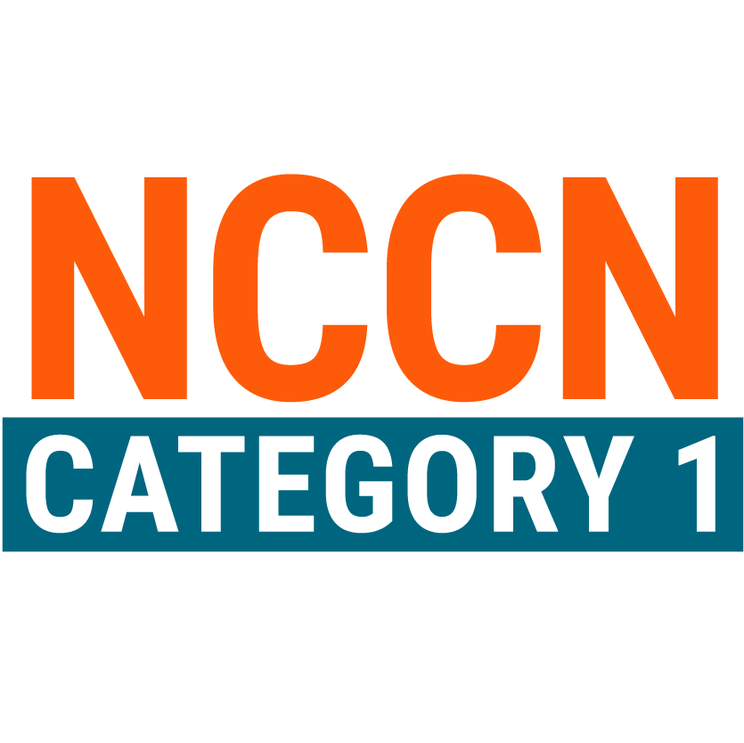

National Comprehensive Cancer Network® (NCCN®) recognizes ribociclib (KISQALI®) as a Category 1 Preferred CDK4/6 inhibitor in combination with an AI for appropriate patients with HR+/HER2- eBC—the only one to receive this designation for both high-risk node-negative and any node-positive disease.1
High-risk node-negative disease is defined as either tumor size >5 cm, or if tumor size 2-5 cm, either grade 2 (with high genomic risk or Ki-67 ≥20%), or grade 3.1,2
NCCN makes no warranties of any kind whatsoever regarding their content, use, or application and disclaims any responsibility for their application or use in any way.1
AI, aromatase inhibitor; CDK, cyclin-dependent kinase; eBC, early breast cancer; HER2-, human epidermal growth factor receptor 2-negative; HR+, hormone receptor-positive.
NATALEE was a randomized, multicenter, open-label, phase III study of KISQALI + letrozole or anastrozole (n=2549) vs letrozole or anastrozole (n=2552) for the adjuvant treatment of men and women with stage II/III HR+/HER2- eBC, including all those with node-positive or high-risk node-negative disease (eligible stages and nodal status include: anatomic stage group IIB-III, or anatomic stage group IIA that is either node positive, or node negative with histologic grade 3, or histologic grade 2 with Ki-67 ≥20% and/or high risk by gene signature testing). At a median follow-up of 33.3 months, with 509 iDFS (primary end point) events in the study (226 [8.9%] in the KISQALI arm and 283 [11.1%] in the NSAI-alone arm), iDFS at the 3-year landmark was 90.7% for KISQALI + NSAI vs 87.6% for NSAI alone (absolute difference 3.1%); there was a 25.1% relative reduction in the risk of an iDFS event; HR=0.749 (95% CI: 0.628-0.892).2,3
HR, hazard ratio; iDFS, invasive disease-free survival; NSAI, nonsteroidal aromatase inhibitor.

Meet your KISQALI patients
Identify eligible patients like Jasmine, Erin, and Katrice today
Experts discuss the outcomes of the NATALEE trial for patients with stage II or III HR+/HER2- eBC at high risk of recurrence
Drs Gadi, Dent, and Cohen have been compensated for their time by Novartis Pharmaceuticals Corporation.
